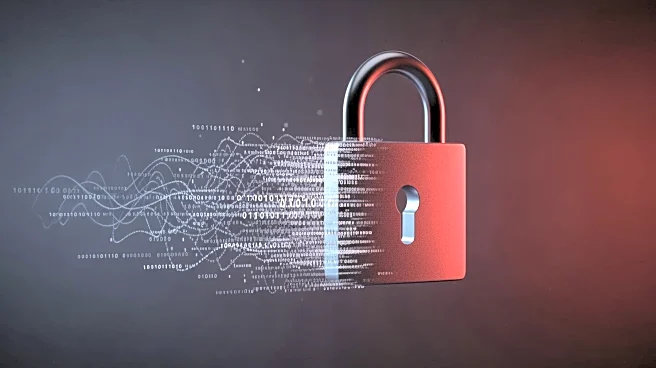What's Happening?
The Federal Communications Commission (FCC) has voted to eliminate cybersecurity rules that required U.S. phone and internet companies to secure their networks against unlawful access. This decision was
made by a 2-1 vote along party lines, with the two Trump-appointed commissioners, Brendan Carr and Olivia Trusty, supporting the removal. The rules, initially adopted by the Biden administration, were designed to protect telecommunications networks from hacking attempts, such as those carried out by the China-backed group Salt Typhoon. This group had previously infiltrated over 200 telecom companies, including major players like AT&T and Verizon, to conduct surveillance on American officials. The FCC's sole Democratic commissioner, Anna Gomez, opposed the decision, emphasizing the importance of these rules in preventing future breaches.
Why It's Important?
The removal of these cybersecurity rules has sparked significant concern among lawmakers and industry experts. Critics argue that the decision leaves American telecommunications networks vulnerable to foreign hacking attempts, potentially compromising national security. Senator Gary Peters expressed his disturbance over the rollback, warning that it exposes the American public to increased risks. Similarly, Senator Mark Warner highlighted the lack of a credible plan to address security gaps exploited by hackers. The telecommunications industry, represented by the NCTA, supported the FCC's decision, labeling the rules as overly prescriptive. However, Gomez cautioned that voluntary cooperation with the industry is insufficient to prevent state-sponsored cyberattacks, stressing the need for enforceable regulations.
What's Next?
The decision to scrap cybersecurity rules may lead to increased scrutiny and pressure from lawmakers and cybersecurity experts to implement alternative measures to protect U.S. telecommunications networks. There may be calls for new legislation or regulatory frameworks to address the vulnerabilities exposed by the removal of these rules. Additionally, the telecommunications industry might face heightened expectations to self-regulate and ensure network security without federal mandates. The ongoing threat from state-sponsored hacking groups like Salt Typhoon could prompt further investigations and discussions on how best to safeguard national communications infrastructure.
Beyond the Headlines
The FCC's decision raises broader questions about the balance between regulatory oversight and industry autonomy in cybersecurity. The move could signal a shift towards a more laissez-faire approach, potentially influencing other sectors where cybersecurity is critical. This development also highlights the geopolitical dimensions of cybersecurity, as foreign hacking groups continue to target U.S. infrastructure. The ethical implications of relying on voluntary industry cooperation without enforceable standards may become a focal point in future policy debates, as stakeholders assess the effectiveness of current cybersecurity strategies.








